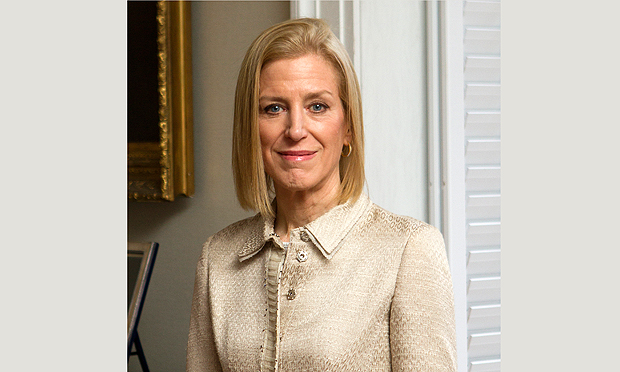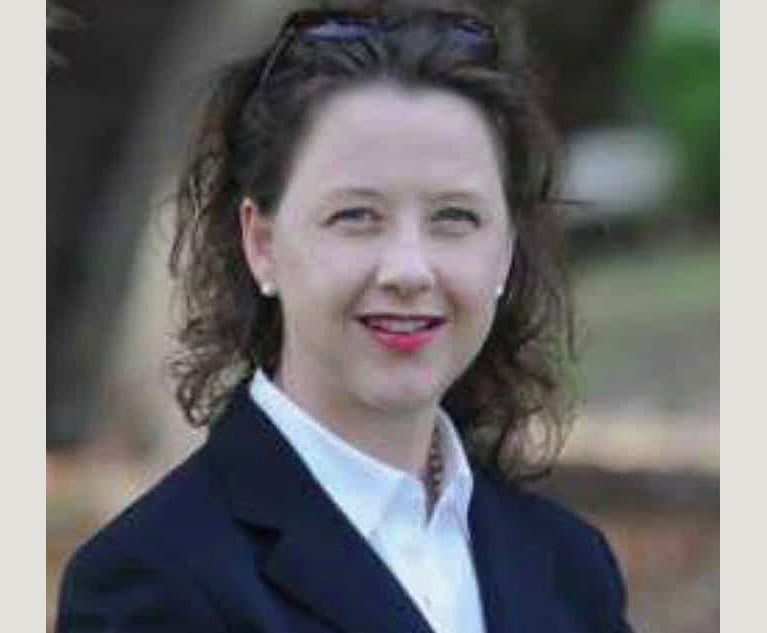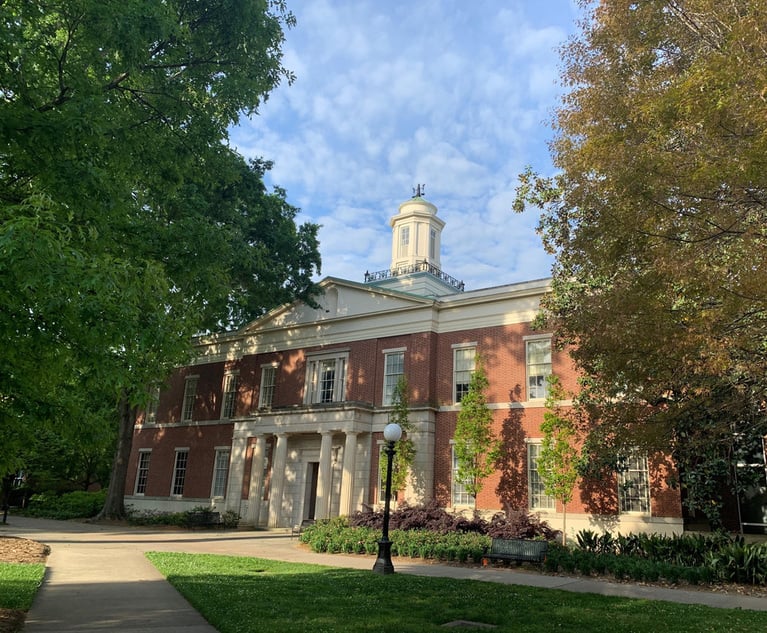Judge Says Traffic Stop Ruling Favors Cops
“I would not put this Court in the business of resuscitating arguments the government was made aware of, then clearly abandoned,” Judge Beverly Martin said. “In my experience, this Court rarely extends the same courtesy to the criminal defendants."
January 11, 2019 at 09:36 AM
4 minute read
 Judge Beverly B. Martin, U.S. Court of Appeals for the 11th Circuit (Photo: John Disney/ALM)
Judge Beverly B. Martin, U.S. Court of Appeals for the 11th Circuit (Photo: John Disney/ALM)
U.S. Court of Appeals for the Eleventh Circuit Judge Beverly Martin scorched her colleagues for favoring the police over a man illegally detained on a traffic stop in a recent ruling.
In a sharp dissent, Martin said the evidence found on a search of the man's car was “fruit of the poisonous tree” and should be excluded.
Martin agreed with the other members of the panel on one point: that police unlawfully prolonged a traffic stop. But she disagreed with the majority's decision to affirm denial of a motion to suppress evidence anyway by giving the state a “good faith exception” that prosecutors didn't even request.
“I would not put this court in the business of resuscitating arguments the government was made aware of, then clearly abandoned,” Martin said. “In my experience, this court rarely extends the same courtesy to the criminal defendants and pro se litigants who come before us.”
Writing for the majority, Judge Gerald Tjoflat agreed with Martin that a Green County sheriff's patrolman unlawfully prolonged the Interstate 20 traffic stop of Erickson Campbell at 9 p.m. on a cold night in December 2013. Tjoflat based this conclusion on the U.S. Supreme Court's decision in Rodriguez v. United States, 135 S. Ct. 1609 (2015).
While writing a warning for a turn signal blinking too rapidly, the officer told Campbell to get into the patrol car and then asked a series of rambling questions that went on for nearly 20 minutes, according to Tjoflat. The officer asked Campbell where he was going, who he was visiting, where they lived, what the area is like, what type of work he did and whether his car contained any guns, illegally burned CDs, contraband, alcohol, drugs or dead bodies, and would it be alright to search for those things.
Eventually another officer arrived and started searching the car, where they found a gun hidden in the trunk. They then arrested Campbell on a charge of being a felon in possession of a weapon.
However, Tjoflat concluded the search and resulting evidence could be allowed because the patrolman's “actions were permitted under binding case law at the time.” Thus, Tjoflat said, “the good faith exception to the exclusionary rule applies.”
Martin noted that Tjoflat was giving the government the benefit of an argument never asserted on appeal. And, she said, Tjoflat declined to give the defense the same kind of favor on a similar issue. She quoted Tjoflat telling the defense lawyer during oral arguments, “We have a hard-and-fast rule in this Circuit. It's pretty punitive, really. That if you don't put it in the brief as an issue, we don't consider it.”
The third member of the panel concurred with Tjoflat: Judge Stephen Murphy III of the Eastern District of Michigan, sitting by designation.
Jonathan Dodson of the federal public defender's office in Macon argued for the defense. Dodson could not be reached immediately for comment.
Lindsay Feinberg of the U.S. Attorney's office for the Middle District of Georgia argued for the state.
First Assistant U.S. Attorney Peter Leary responded to a request for comment, saying, “We appreciate the majority's decision affirming the denial of Mr. Campbell's motion to suppress and clarifying the legal standards for future Fourth Amendment cases involving traffic stops in the Eleventh Circuit.”
The case is USA v. Campbell, No. 16-10128.
This content has been archived. It is available through our partners, LexisNexis® and Bloomberg Law.
To view this content, please continue to their sites.
Not a Lexis Subscriber?
Subscribe Now
Not a Bloomberg Law Subscriber?
Subscribe Now
NOT FOR REPRINT
© 2025 ALM Global, LLC, All Rights Reserved. Request academic re-use from www.copyright.com. All other uses, submit a request to [email protected]. For more information visit Asset & Logo Licensing.
You Might Like
View All

Ex-Prosecutor’s Trial Ends as Judge Throws Out Her Felony Indictment in Ahmaud Arbery Death Case


Ex-Prosecutor Denies on Witness Stand That She Tried to Protect Ahmaud Arbery's Killers
Trending Stories
- 1Judge Pauses Deadline for Federal Workers to Accept Trump Resignation Offer
- 2DeepSeek Isn’t Yet Impacting Legal Tech Development. But That Could Soon Change.
- 3'Landmark' New York Commission Set to Study Overburdened, Under-Resourced Family Courts
- 4Wave of Commercial Real Estate Refinance Could Drown Property Owners
- 5Redeveloping Real Estate After Natural Disasters: Challenges, Strategies and Opportunities
Who Got The Work
J. Brugh Lower of Gibbons has entered an appearance for industrial equipment supplier Devco Corporation in a pending trademark infringement lawsuit. The suit, accusing the defendant of selling knock-off Graco products, was filed Dec. 18 in New Jersey District Court by Rivkin Radler on behalf of Graco Inc. and Graco Minnesota. The case, assigned to U.S. District Judge Zahid N. Quraishi, is 3:24-cv-11294, Graco Inc. et al v. Devco Corporation.
Who Got The Work
Rebecca Maller-Stein and Kent A. Yalowitz of Arnold & Porter Kaye Scholer have entered their appearances for Hanaco Venture Capital and its executives, Lior Prosor and David Frankel, in a pending securities lawsuit. The action, filed on Dec. 24 in New York Southern District Court by Zell, Aron & Co. on behalf of Goldeneye Advisors, accuses the defendants of negligently and fraudulently managing the plaintiff's $1 million investment. The case, assigned to U.S. District Judge Vernon S. Broderick, is 1:24-cv-09918, Goldeneye Advisors, LLC v. Hanaco Venture Capital, Ltd. et al.
Who Got The Work
Attorneys from A&O Shearman has stepped in as defense counsel for Toronto-Dominion Bank and other defendants in a pending securities class action. The suit, filed Dec. 11 in New York Southern District Court by Bleichmar Fonti & Auld, accuses the defendants of concealing the bank's 'pervasive' deficiencies in regards to its compliance with the Bank Secrecy Act and the quality of its anti-money laundering controls. The case, assigned to U.S. District Judge Arun Subramanian, is 1:24-cv-09445, Gonzalez v. The Toronto-Dominion Bank et al.
Who Got The Work
Crown Castle International, a Pennsylvania company providing shared communications infrastructure, has turned to Luke D. Wolf of Gordon Rees Scully Mansukhani to fend off a pending breach-of-contract lawsuit. The court action, filed Nov. 25 in Michigan Eastern District Court by Hooper Hathaway PC on behalf of The Town Residences LLC, accuses Crown Castle of failing to transfer approximately $30,000 in utility payments from T-Mobile in breach of a roof-top lease and assignment agreement. The case, assigned to U.S. District Judge Susan K. Declercq, is 2:24-cv-13131, The Town Residences LLC v. T-Mobile US, Inc. et al.
Who Got The Work
Wilfred P. Coronato and Daniel M. Schwartz of McCarter & English have stepped in as defense counsel to Electrolux Home Products Inc. in a pending product liability lawsuit. The court action, filed Nov. 26 in New York Eastern District Court by Poulos Lopiccolo PC and Nagel Rice LLP on behalf of David Stern, alleges that the defendant's refrigerators’ drawers and shelving repeatedly break and fall apart within months after purchase. The case, assigned to U.S. District Judge Joan M. Azrack, is 2:24-cv-08204, Stern v. Electrolux Home Products, Inc.
Featured Firms
Law Offices of Gary Martin Hays & Associates, P.C.
(470) 294-1674
Law Offices of Mark E. Salomone
(857) 444-6468
Smith & Hassler
(713) 739-1250






